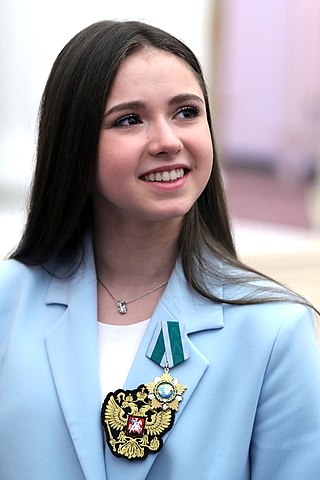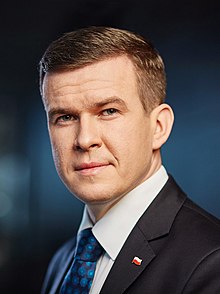
The United States Anti-Doping Agency is a non-profit, non-governmental 501(c)(3) organization and the national anti-doping organization (NADO) for the United States. To protect clean competition and the integrity of sport and prevent doping in the United States with a performance-enhancing substance, the USADA provides education, leads scientific initiatives, conducts testing, and oversees the results management process. Headquartered in Colorado Springs, Colorado, USADA is a signatory to the World Anti-Doping Code, which harmonizes anti-doping practices around the world, and is widely considered the basis for the strongest and strictest anti-doping programs to prevent doping in sport.
In competitive sports, doping is the use of banned athletic performance-enhancing drugs (PEDs) by athletes, as a way of cheating. As stated in the World Anti-Doping Code by WADA, doping is defined as the occurrence of one or more of the anti-doping rule violations outlined in Article 2.1 through Article 2.11 of the Code. The term doping is widely used by organizations that regulate sporting competitions. The use of drugs to enhance performance is considered unethical and is prohibited by most international sports organizations, including the International Olympic Committee. Furthermore, athletes taking explicit measures to evade detection exacerbate the ethical violation with overt deception and cheating.

The World Anti-Doping Agency is an international organization co-founded by the governments of over 140 nations along with the International Olympic Committee based in Canada to promote, coordinate, and monitor the fight against drugs in sports. The agency's key activities include scientific research, education, development of anti-doping capacities, and monitoring of the World Anti-Doping Code, whose provisions are enforced by the UNESCO International Convention Against Doping in Sport. The aims of the Council of Europe Anti-Doping Convention and the United States Anti-Doping Agency are also closely aligned with those of WADA.

Trimetazidine is a drug sold under many brand names for angina pectoris. Trimetazidine is described as the first cytoprotective anti-ischemic agent developed and marketed by Laboratoires Servier (France). It is an anti-ischemic (antianginal) metabolic agent of the fatty acid oxidation inhibitor class, meaning that it improves the heart muscle's ability to use glucose as a fuel by inhibiting its use of fatty acid metabolism. It has become controversial for its use as a performance-enhancing drug, with several scandals involving its use erupting at successive Olympic games.
Competitors at the Olympic Games have used banned athletic performance-enhancing drugs.

Sun Yang is a Chinese Olympic and former world-record-holding competitive swimmer. In 2012, Sun became the first Chinese athlete to win an Olympic gold medal in men's swimming. Sun is the first male swimmer in history to earn Olympic and World Championship gold medals at every freestyle distance from 200 to 1500 metres. A three-time Olympic gold medalist and eleven-time world champion, he is the most decorated Chinese swimmer in history. In 2017, NBC Sports described him as "very arguably the greatest freestyle swimmer of all time".
China was alleged to have conducted a state-sanctioned doping operation in the 1980s and 1990s by former General Administration of Sport physician Xue Yinxian. The World Anti-Doping Agency investigated these allegations and found no evidence to corroborate them. Other allegations of doping have focused on swimmers and track and field athletes, such as those taught by Ma Junren. In the Olympics, China has been stripped of a total of three gold medals for doping; all were weightlifters competing in the 2008 Summer Olympics. Eleven Chinese athletes were stripped of medals for doping at the 1994 Asian Games. China's doping has been attributed to a number of factors, such as the exchange of culture and technology with foreign countries. Some scholars believe that the country has become the focus of Western anti-doping condemnation in place of East Germany and other former Eastern Bloc countries.

Travis Thompson Tygart is an American lawyer and CEO of the United States Anti-Doping Agency (USADA). He is best known for his role in exposing Lance Armstrong's massive doping operation.
Doping, or the use of restricted performance-enhancing drugs in the United States occurs in different sports, most notably in the sports of baseball and football.

The swimming competitions at the 2020 Summer Olympics in Tokyo were due to take place from 25 July to 6 August 2020 at the Olympic Aquatics Centre. Due to the COVID-19 pandemic, the games were postponed to 2021. However, their official name remained 2020 Summer Olympics with swimming events set for 24 July–1 August 2021 and marathon swimming set for 4–5 August 2021.
Shayna Jack is an Australian swimmer. She won gold medals in Women's 4 × 100 metre freestyle relay and Women's 4 × 200 metre freestyle relay at the 2024 Paris Olympics.
Systematic doping of Russian athletes has resulted in 51 Olympic medals stripped from Russia, four times the number of the next highest, and more than 30% of the global total. Russia has the most competitors who have been caught doping at the Olympic Games in the world, with more than 150.

Kamila Valeryevna Valieva is a Russian figure skater. She is the 2021 Rostelecom Cup champion, the 2021 Skate Canada champion, the 2020 Junior World champion, the 2019-20 Junior Grand Prix Final champion and the 2021 Russian national silver medalist.
Doping in figure skating involves the use of illegal performance-enhancing drugs (PEDs), specifically those listed and monitored by the World Anti-Doping Agency (WADA). Figure skaters occasionally have positive doping results but it is not common. Bans can be enforced on figure skaters by the International Skating Union (ISU) and each country's individual skating federation. These bans can often be career ending due to the competitive nature of figure skating. A ban may be revoked if it can be proved that the skater tested positive for a prescribed medication. Some figure skaters will use PEDs to help with recovery time, allowing them to train harder and longer. Figure skating is an aesthetic sport that combines both athleticism and artistic licence, where weight-loss substances will have little effect on athletic performance but skaters may be perceived as more graceful and sleek, which is required for an athlete to be competitive.
Figure skating at the 2022 Winter Olympics was held at the Capital Indoor Stadium in Beijing, China. The five events took place between 4 and 20 February 2022.
The women's singles competition in figure skating at the 2022 Winter Olympics was held on 15 February and 17 February, at the Capital Indoor Stadium in Haidian District of Beijing. Anna Shcherbakova, representing the Russian Olympic Committee, won the event, and her teammate, Alexandra Trusova, the silver medal. Kaori Sakamoto of Japan won bronze. For all, it was their first individual Olympic medals; Sakamoto had earlier won a medal in the team event.
The team event in figure skating at the 2022 Winter Olympics was held on 4, 6, and 7 February, at the Capital Indoor Stadium in Haidian District of Beijing.

The swimming competitions at the 2024 Summer Olympics in Paris were held from 27 July to 9 August 2024. Pool events took place at the Paris La Défense Arena, with the two-day marathon swimming staged at Pont Alexandre III through the Seine River.
The China Anti-Doping Agency, as the national anti-doping agency of the People's Republic of China, was established in 2007. The predecessor was the Doping Control Center of the Institute of Sports Medicine of the National Sports Commission, which was established in 1987.










